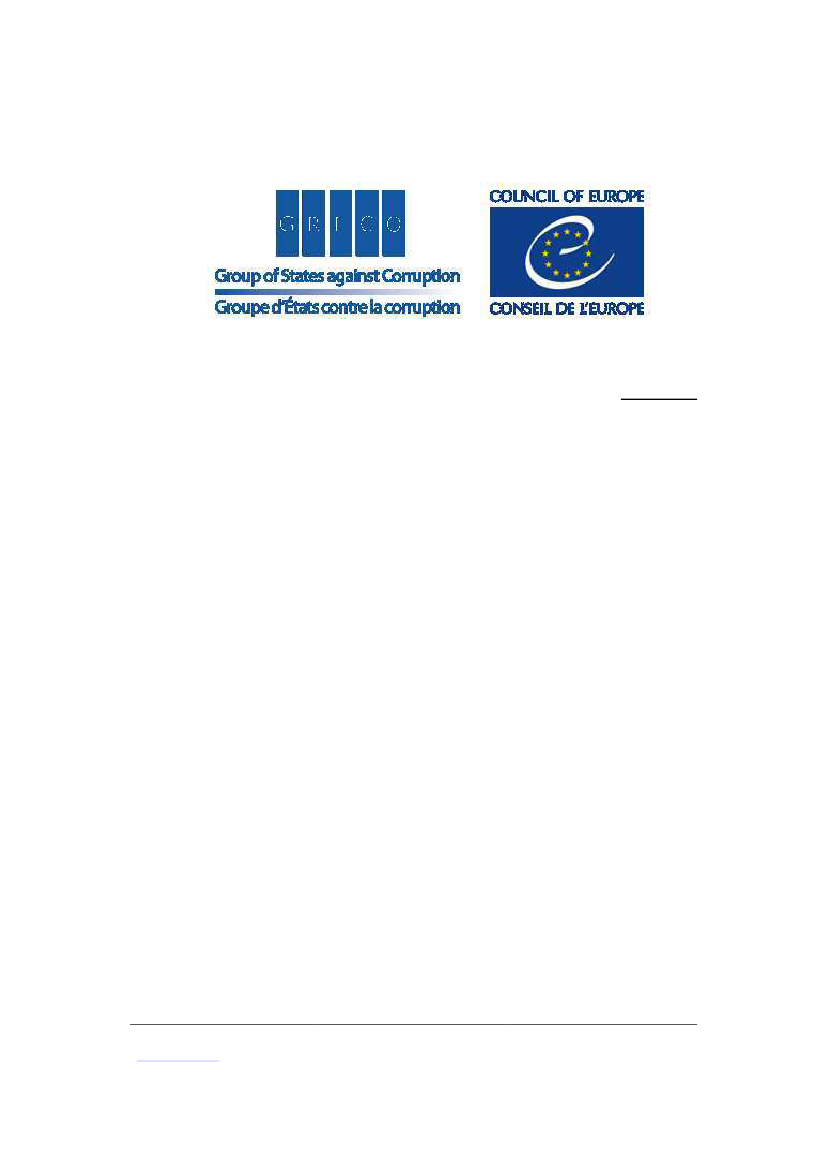
Retsudvalget 2020-21
REU Alm.del - Bilag 337
Offentligt
Adoption : 25 March 2021
Confidential
GrecoRC3(2021)2
Third Evaluation Round
Addendum to the Second Compliance Report
on Denmark
”Incriminations (ETS 173 and 191, GPC
2)”
***
”Transparency of Party Funding”
Adopted by GRECO
at its 87
th
Plenary Meeting
(Strasbourg, 22-25 March 2021)
GRECO Secretariat
Council of Europe
www.coe.int/greco
F-67075 Strasbourg Cedex
+33 3 88 41 20 00
Fax +33 3 88 41 39 55
Directorate General I
Human Rights and Rule of Law
Information Society and Action against
Crime Directorate